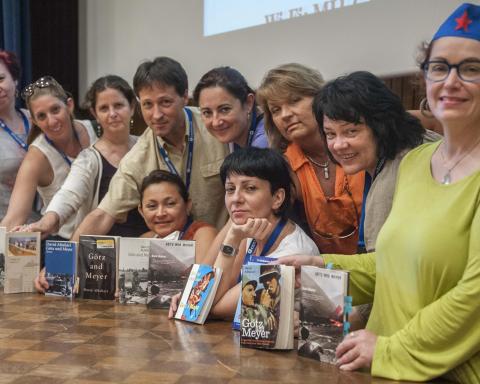Hungary
The masterwork on the Holocaust in Hungary, The Politics of Genocide, was written by Randolph Braham. The book is more than 1,200 pages and is divided into two volumes. You will be relieved that it is not required reading. This is a link to the abbreviated edition.
Although not a required reading, Fatelessness by Imre Kertesz is a remarkable novella, both wise and cynical.
Review by The Guardian (scroll down to third review)
Although not a required reading, The Circumcision by György Dalos is a remarkable novella, both wise and cynical, which we hope you will all read.
Review by The Guardian (scroll down to fourth review)
A fine history of Hungary was written by the Hungarian-born, Vienna-based broadcaster Paul Lendvai. The Hungarian novelist Tibor Fischer wrote this entertaining review of Lendvai’s The Hungarians for The Guardian (click on link below):
Review by The Guardian
If you find the time, Kati Marton wrote this entertaining book, The Great Escape: Nine Hungarians Who Escaped Hitler and Changed the World, which is an easy read through the careers of some remarkably talented Hungarian Jews, who didn’t just film the world (Michael Curtisz gave us Casablanca, Alexander Korda produced scores of films), but through Leo Szilard and Edward Teller, they could have destroyed the world through their work on the atom and hydrogen bombs)
Review by Kirkus Reviews
The remarkable story of how one Jewish boy and 400 others were protected in a "yellow star house” in Budapest during the Holocaust. The house was converted into a hospital run by Jewish doctors designed to treat everyone—even wounded enemies—free of charge. The Jewish residents were saved by a man who posed as an Arrow Cross officer and risked his own life countless times while over 70,000 Jews were being murdered at the Danube or dying in ghettos. The Yellow Star House is a story of courage, family, hope, rescue and luck.






